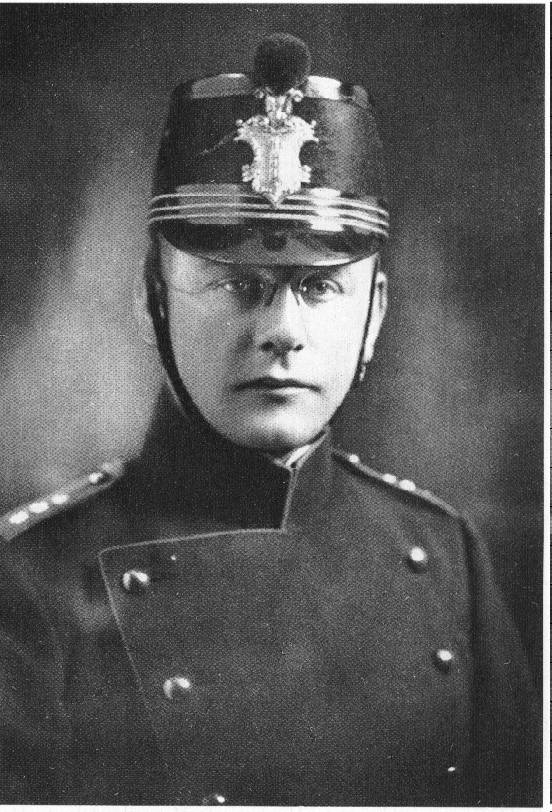
Paul Grüninger
Paul Grüninger was a policeman and footballer in Switzerland who helped thousands of Austrian Jews fleeing persecution. He illegally allowed them to cross the border to Switzerland between August 1938 and April 1939. He was recognised as a Righteous Among the Nations in 1971, a year before his death.
Grüninger was born in 1891 in the city of St Gallen. He was an avid footballer in his youth and played for local team SC Brühl. In the 1914-1915 season he helped the club to win their one and only Swiss Championship.
His football successes took place before the professionalisation of the game and after serving in World War One, Grüninger joined the police. He excelled in this career and rose through the ranks in his hometown of St Gallen.
Grüninger was Police Captain of St Gallen when the Nazis annexed neighbouring Austria in August 1938. Jewish members of the population now faced the same persecution and violence that German Jews were suffering. The Swiss government sent explicit instructions to Grüninger that he was to turn Jewish refugees back to Austria.
With official channels of emigration now closed to Austrian Jews, many who feared for their lives decided to risk crossing the Swiss border illegally. The journey was not an easy one. Refugees who were captured crossing the border in the St Gallen area were brought to Grüninger hungry, cold and distraught at having been forced to leave their former lives behind.
Grüninger decided to take a risk that would destroy his own career, but give refuge to thousands. Not only did he permit illegal entry to Switzerland, he falsified documents so that the Jews were issued with passports classifying them as legal immigrants. Grüninger efforts to help the refugees even extended to paying out of his own pocket for winter clothes for those who had been unable to flee with them.
Such kindness did not go unnoticed and Grüninger actions were eventually discovered. On April 3 1939 when he arrived for work, the entrance to the police station was blocked. Although as chief of the station this was unprecedented, Grüninger immediately recognised that his actions had been discovered. Months before he had been warned he was under investigation by the Gestapo. Yet, Paul continued to illegally falsify documents for Jewish refugees from Austria right up until his arrest.
For his actions, Paul was sacked from his job and brought to trial for allowing the legal entry of 3,600 Jews into Switzerland. He was found guilty and fined by the court. With a criminal record and his heroism forgotten, Paul struggled to find employment after World War Two. Despite these difficulties he never regretted his actions.
After his death and recognition by Yad Vashem, Paul’s legacy was subsequently restored in Switzerland. In 1995, the Swiss Government finally annulled his conviction. Several streets and a school have been named after him and in 2006, SC Bruhl’s stadium was renamed Paul Grüninger Stadion.